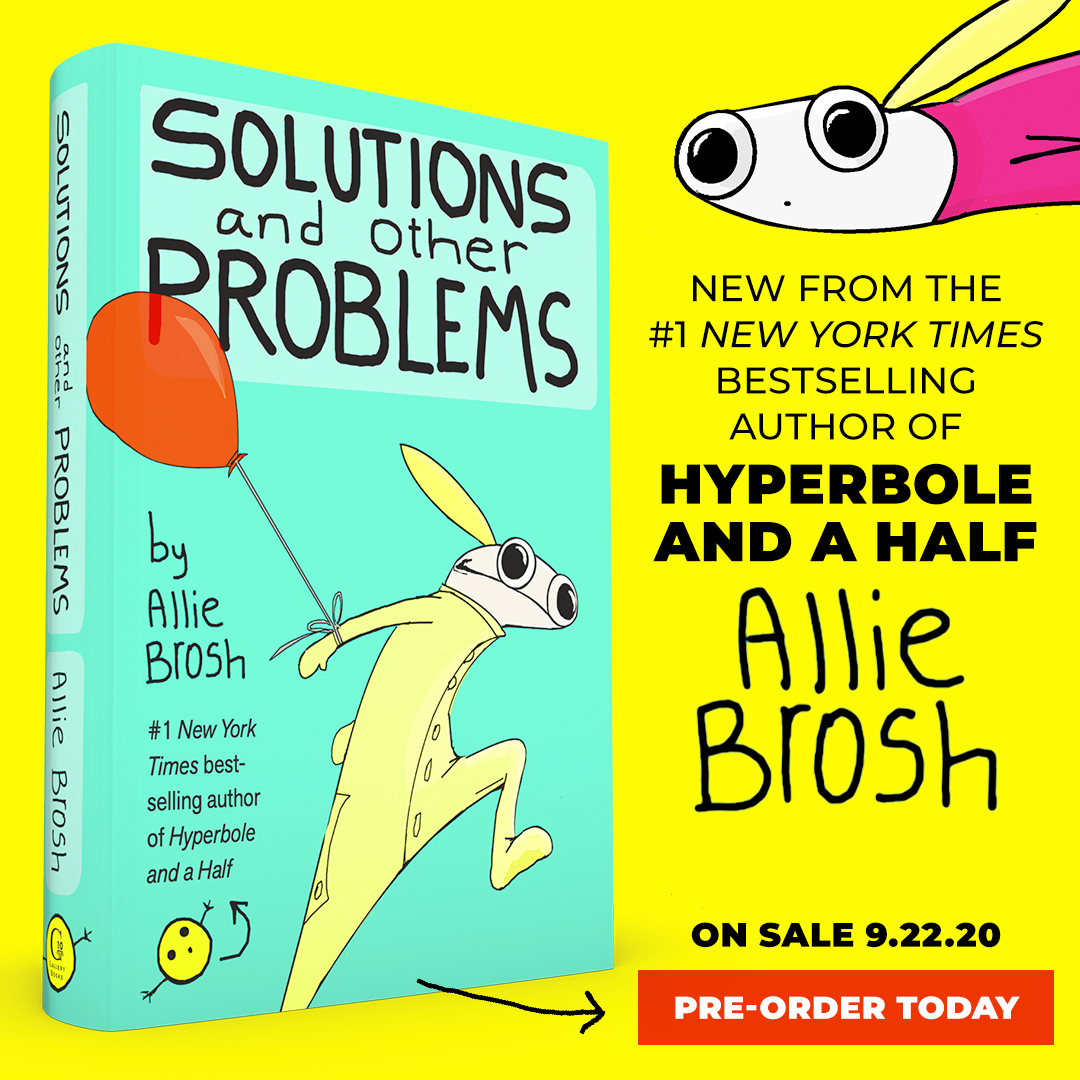

For 7 consecutive months, Brosh avoids, refuses, and outright lies to Neighbor Kid so as not to see her room, no matter how many lamps are in there.īrosh’s work isn’t just for introverts.

I had, after all, just finished Chapter 3, the one about Neighbor Kid, who “gets up at 5 in the morning and hangs out directly in front of door like a bridge troll-all who wish to pass must answer her riddles, and the only riddle she knows is Do you want to see my room?” Neighbor Kid does this for “7 consecutive months.” “I have never met anybody,” Brosh writes, “who is this determined about anything.” Anybody, that is, except for Brosh herself. I didn’t care for the shade of blue they chose for the renovation either but knew better than to say so aloud. I shifted ever-so-slightly in my seat to make eye contact impossible. I was rereading Solutions while waiting at the doctor’s office purposely ignoring the man who, sitting as close as COVID-possible, kept alternately sighing and commenting about HGTV. Solutions and Other Problems is full of Brosh’s trademark whimsy and wisdom and yet is somehow more daring and vulnerable. Indeed, part of Hyperbole’s appeal is Brosh’s candid, humorful, and refreshingly spot-on depictions of her paralyzing anxiety and depression. Brosh’s graphic proxy borders on stick figure, with big eyes and a yellow ponytail, and usually wears a vivid pink onesie or, if depressed, a gray hoodie. Called “a connoisseur of the human condition” by Kirkus Reviews, Brosh’s autobiographical prose mixed with simple Paintbrush drawings-what Brosh herself has called “stand-up comedy in book form”-is silly, insightful, and poignant. Think of it as the narrative-comic equivalent to Alanis Morisette following Jagged Little Pill or Fiona Apple following Tidal. Allie Brosh’s Solutions and Other Problems is the highly anticipated follow-up to the genre-busting, art-blog-turned- New-York-Times-bestseller Hyperbole and a Half (Gallery Books, 2013).


 0 kommentar(er)
0 kommentar(er)
